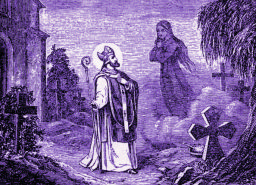A loose-lipped Pope and tight-lippped laity: Pope Francis' ironic papacy
 |
| Pope Francis holding forth on a plane, this will become the defining image of his Papacy |
Others feared such an interview would be a gateway for further forensic questioning by the media on such things as 'gay rights' and if they agreed with the statement, "who am I to judge" when they may believe such a "lifestyle" to be sinful. They didn't feel the Pope had their back anymore. Yet, it was still the early days of the Francis Papacy. I was still zealous about seeking out high-profile Catholics and Catholics in the public eye who quietly attend the Latin Mass.
I had enjoyed a little success doing interviews during the reign of Pope Benedict when people were so much more open and when the thought of sounding more conservative than the Pope was far from their minds. Now the misty days of 2014 and 2015 were upon us, I was getting copious commissions from newspapers and magazines in both England and Ireland and I was sending one interview request per day on average. Yet, as Pope Francis's papacy took on a loose-lipped, loquacious life of its own, the irony was that Catholics in the limelight became tongue-tied about their piety and beliefs.
One exception to this rule was Bill Murray, who gave a fearless, free-wheeling interview to The Guardian in November 2014. Among other things, Murray said, "I tend to disagree with what they call the New Mass. I think we lost something by losing the Latin. Now if you go to a Catholic mass even just in Harlem it can be in Spanish, it can be in Ethiopian, it can be in any number of languages. The shape of it, the pictures, are the same but the words aren’t the same....And I really miss the music – the power of it, y’know? Yikes! Sacred music has an affect on your brain."
Indeed, one evening I was at a Tridentine Mass in central London and saw Bill Murray sidle in, clad in a very formal black suit and conducting himself very reverently.
Bill Murray aside, the silence has generally been deafening. And with each new interview in print and on planes that Pope Francis has given, the trepidation, however, among people with a public image has only grown greater. Fear of being contrasted with Pope Francis and of being found to be more conservative or traditional is not always the reason for refusing an interview. But it has been given (or hinted at) often enough I've seen a trend emerging. Most of you may be thinking of the interview Jacob Rees-Mogg gave in 2017, but his interview was all the more exceptional because for the greater part Catholics the world over (who have similar fame to Rees-Mogg) have not dared give an interview like he did.
As a defence mechanism many influential Catholics from lots of different spheres, who work in TV and film or are acclaimed writers or have high places in political life have fallen silent. This is more self-protective than cowardice, an exercise in not giving the liberal media sticks to beat them with. Is silence for safety's sake, the hallmark of a dictatorship? When people feel secure by keeping quiet is this the sign of oppression? As I write this I'm careful not to name names or give personal identifying details - it is telling this would cause distress. And I've instructed my best friend to burn all my journals to black ash in the event of my death or disappearance. Only joking - or am I?
I can theorise as to why there was not a coterie of Catholic celebrities who spoke up to defend Francis in light of the ongoing opposition to Amoris Laetitia. I don't believe they care to agree with him. I suggest that had high-profile Catholics wholly embraced Amoris Laetitia they would not be shy about supporting Francis in the public eye. Were they to, they would become darlings of the mainstream. They, however, remain as they have been: silent.
I wrote this article for the spring 2018 edition of The Mass of Ages, you may read the full magazine here.




Comments
Post a Comment